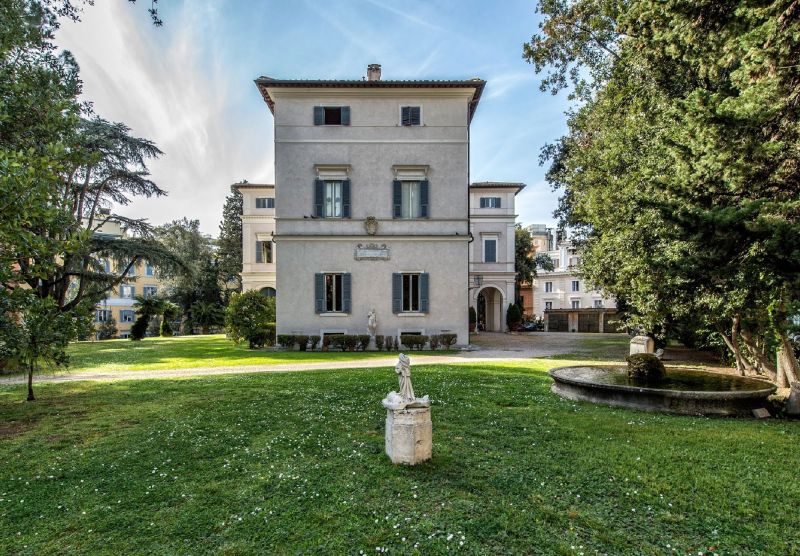Italy’s sale of the century: Rome villa with its own Caravaggio

Rome: Rome’s Casino di Villa Boncompagni Ludovisi, home to the world’s only ceiling mural painted by Caravaggio, is up for auction on 18 January with a minimum opening bid of €353 million.
Dubbed the “auction of the century” by the Italian media, the villa’s estimated value of €471 million makes it one of the most expensive homes ever put on the market.
The 2,800-sqm historic property, known as Villa Aurora, is hidden behind high walls near Via Veneto.
It has been owned since 1621 by the noble Ludovisi family whose descendants include Popes Gregory XIII – who introduced the Gregorian calendar – and Gregory XV.
The death in 2018 of the villa’s last owner, Prince Nicolò Boncompagni Ludovisi, sparked a protracted inheritance battle.
The dispute was between the prince’s three sons from his first marriage and his third wife, the American-born Princess Rita Boncompagni Ludovisi, 72, who spent much of the last two decades renovating the property with her late husband.

The courts ruled that the villa be put up for auction, estimating its value at €471 million, much of which is attributed to the Caravaggio mural.Whoever purchases the property, protected under Italian cultural heritage laws, will be required to spend a further €11 million on restoration costs.
An online petition, signed by almost 38,000 people so far, is urging the government to use Italy’s National Plan of Recovery and Resilience (PNRR), funded largely by the EU, to purchase the Casino dell’Aurora.
Italian newspaper La Repubblica reported that culture minister Dario Franceschini has written to premier Mario Draghi and finance minister Daniele Franco to enquire about the possibility of a state bid.
Under Italian law, the government has a 60-day window to exercise its right of first refusal after a sale agreement to private investors, Bloomberg reports.
Built in 1570, Villa Aurora was bought in 1621 by Cardinal Ludovico Ludovisi, nephew of Pope Gregory XV, and was used originally as the family’s hunting lodge.
The property, expanded in 1858, is all that remains of Villa Ludovisi, a 30-hectare country retreat established by Cardinal Francesco Maria Del Monte.
In the late 19th century the bulk of the estate was sold off by the Ludovisi family during Rome’s construction boom, leading to the creation of the upmarket ‘Ludovisi’ district.
Several of the villa’s rooms are frescoed by the Italian Baroque painter Guercino, including one in the main reception hall of the Roman goddess of dawn, Aurora, which gives the building its name.
The villa is also home to works by Bril, Domenichino, Pomarancio and Viola; a staircase by architect Carlo Maderno, who designed the façade of St Peter’s; and a stellar collection of ancient statues.
However the villa’s most precious cultural asset is Caravaggio’s mural of Jupiter, Neptune and Pluto, the only known ceiling painting by the Baroque master.
With an estimated value of more than €310 million, the wall painting dates to 1597 and was commissioned by Cardinal Del Monte, a diplomat and generous patron of the arts.
Painted in oils on plaster, the mural features an allegorical scene reflecting the cardinal’s fascination with alchemy.
Jupiter, accompanied by an eagle, represents sulphur and air; Neptune, with a hippocamp, stands for mercury and water; and Pluto, with the three-headed dog Cerberus, represents salt and earth.
In the mural, Jupiter is depicted reaching out to move the celestial sphere in which the sun revolves around the earth.
The work measures 2.75 metres wide and can be found on the first floor in a small room that served as the cardinal’s alchemy laboratory.
The villa has a particularly rich history. The property was once part of the Horti Sallustiani, a grand Roman estate with landscaped gardens, on land originally owned by Julius Caesar.
Over the centuries the villa has hosted many illustrious figures, from Galileo to Goethe.
In his 1909 memoir Italian Hours, Henry James admired the villa’s rooms and its sweeping rooftop views over Rome. The ‘auction of the century’ is scheduled to be held on Tuesday 18 January at 15.00.





